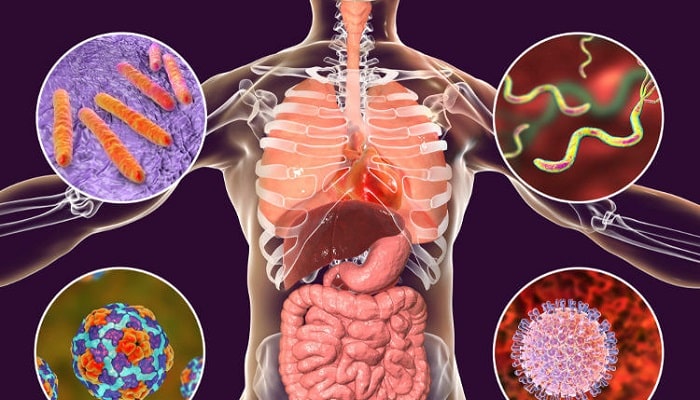You've probably heard that our body is made up of more bacteria cells than human cells. But do you know how many bacteria there are in our body? It's a pretty big number: over 39 trillion!!!
What are bacteria?
Bacteria are living microorganisms that can be found everywhere on the planet. They are in the air, water and soil. Some bacteria are beneficial to our body, but others can cause disease.
Bacteria come in many shapes, sizes, and colors. Some bacteria are very small and cannot be seen with the naked eye. To study them, we need a microscope.
Scientists classify bacteria into two broad groups: Gram-positive and Gram-negative. Gram-positive bacteria are more common and include some of the species that cause disease, such as streptococcus (which can cause a sore throat) and staphylococcus (which can cause sore skin). Gram-negative bacteria are less common and include some of the species that cause diarrhea, such as E.coli.
How important are bacteria to our body?
Bacteria are microscopic living beings that inhabit the most diverse environments on the planet, including our body. Many of these bacteria are beneficial to us, performing essential functions for our health.
An example is the bacterium Escherichia coli, which inhabits the human intestine and helps in the digestion of some nutrients, such as lactose. In addition, bacteria also produce vitamins of complex B and K, which are important for our metabolism.
Another example of beneficial bacteria is Lactobacillus acidophilus, which inhabits the gastrointestinal tract and helps maintain the balance of the intestinal microbiota. This microbiota is important for health because it acts in the body's defense against pathogens and in the absorption of nutrients.
The health benefits of bacteria
Bacteria are microscopic living beings that can be found in all environments on the planet, including inside human beings. Despite their reputation for causing disease, most bacteria are harmless and even beneficial to health.
The health benefits of bacteria include strengthening the immune system, digesting nutrients, and preventing disease. Bacteria also play a crucial role in maintaining gut health and producing vitamin K2, which is important for bone health.
Prevention of diseases
With a balanced flora (amount of correct bacteria for each area of your body) it is possible for you to have better health and stay further away from other opportunistic diseases, such as fungi, for example, which take advantage when our bacterial flora is unprotected.
more energy
As already mentioned, good health gives you much more energy to work and do everything you like. Take advantage of this benefit to improve your quality of life and pursue your goals.
You don't need to buy probiotics at the pharmacy, there are foods that can help you keep your bacterial flora up to date. Some of them are: kimchi (typical filling of Korean cuisine), sauerkraut, natural yogurt, kefir and tempeh (soy cheese). Another option is to use natural supplements.
food and hygiene
Food and hygiene must go hand in hand with our bacterial flora.
By ingesting nutrients necessary for the proper functioning of the organism, we are also benefiting our microbiota.
Likewise, foods rich in sugars and fats can contribute to the reduction of beneficial bacteria.
Fiber-rich foods are essential to maintain a healthy digestion process and a balanced microbiota, as they act in the elimination of toxins from the intestine and help in the digestion of nutrients.
To keep the body healthy, it's important to also be careful with hygiene: use neutral soaps whenever possible, avoid prolonged and very hot baths and not use chemical products that can alter bacterial flora."
Food and hygiene are important to maintain a healthy microbiota. A diet rich in nutrients and fiber helps keep the digestion process healthy, while hygiene prevents the proliferation of harmful bacteria.
After all, did you like to know more about it? Let us know in the comments and don't forget to share with your friends and family.


